The first cohort of Pilot Cities from across twenty-one European Union and Horizon 2020 Associated Countries has been selected to embark upon unprecedented climate action, through the NetZeroCities Pilot Cities Programme.
Discover the Pilot Cities profiles
Working individually or as clusters, these Pilot Cities will implement systemic and locally designed innovative actions that span multiple areas, from buildings to waste, and levers of change, including governance, finance and policy. The 53 cities are part of 25 applications that have been selected from a wide array of 103 applications involving 159 cities in total from 33 countries across the European Union and Horizon 2020 Associated Countries.
You can click on each Pilot City profile picture to learn more about the activities of that specific Pilot.
Multi-City Pilot Activities
CoLAB – Committed to Local Climate Action Building
Let’sGOv – GOverning the Transition through Pilot Actions
Dutch 100CNSC Cities Pilot
NEEST – NetZero Emission and Environmentally Sustainable Territories
UP-SCALE-Urban Pioneers – Systemic Change Amid Livable Environments
URBANEW: Multi-stakeholder Innovative & Systemic Solutions for Urban Regeneration Spain
Individual Pilot Cities Activities
Net Zero Investment Co-Innovation Lab
Budapest CARES – Climate Agency for Renovation of homES
Blueprint for Net-Zero Apartment-block Neighbourhoods
FAASST-NZ : Facilitate trAnsition Actions maSSification Towards Net Zero
Drammen City – Zero emission 2030
Galway City Net Zero Pilot City
District C: a Zero-carbon Commitment
Green and Carbon Neutral Building Transition Guide – Istanbul Model
NEUTRON
Systemic Change Towards Sustainable Commuting in Lahti
The Initiation of Sustainable Energy Community for the City of Liberec
Limassol City Cooling Challenge: LC³
Net Zero Malmö Pilot
Together Towards Climate Neutrality
Creating NetZero Vision for Rivne
1.5-Degree City
The North Star
SCALE UP – Systematic Climate Action to Lower Emissions in Uppsala
NETZEROCITIES PILOT CITIES PROGRAMME
This two-year learning programme supports European cities to test and implement systemic and locally designed innovative approaches to rapid decarbonisation contributing to the EU Mission for Climate-Neutral and Smart Cities.
COHORT 1 – CALL DOCUMENTS AND RESOURCES
Call related documents
This document includes a detailed overview of the programme, its approach, expected outcomes, and key concepts and terminology.
This document provides information on the aim, scope and approach of the call and clarifies how to submit a proposal, budget requirements and the review mechanism and decision making process.
Pilot Cities Call budget template.
This document explains the application budget and contains the main legal and financial rules for the NZC Call for Pilot Cities.
Pilot Cities Call form template.
Information sessions
NZC consortium provided a series of information sessions to support and guide cities:
- 27 June 2022 – Ambition, approach, application. Watch the recording & download the presentation
- 4 July 2022 – Criteria for selection and the selection process Watch the recording & download the presentation
- 5 September 2022 – 15:00 – 16:30: Refresher on the Ambition and Approach & Technical Information Watch the recording & download the presentation
- 7 September 2022 – 15:00 -16:30: Refresher on Eligibility and Assessment Criteria Watch the recording & download the presentation
- 8 September 2022 – 15:00 – 16:30: Pilot City Monitoring, Evaluation and Learning Info Session Watch the recording & download the presentation
FREQUENTLY ASKED QUESTIONS
Monitoring and reporting FAQs
An amendment may be needed on a case-by-case basis, for example, if the actual costs reported per WP showcase that the breakdown per WP has significantly changed, and that this may consequently illustrate that the implementation has changed substantially and that the project being delivered is quite different as foreseen. Then an amendment could translate these changes.
The estimated budget breakdown indicated in Annex may be adjusted — without an amendment (see Article 55 of the AGA H2020) — by transfers of amounts between beneficiaries, budget categories and/or forms of costs, if the action is implemented as described in Annex 1.
Actual costs reported should be as closed as possible from the foreseen budget approved and against which the project has been awarded. However, the real situation on costs may vary from the provisional budget accepted.
If overspent or underspend significantly within cost categories (less/more than a 10% variance) a brief convincing explanation of the deviation must be provided
In general, we do not require all deliverables to be translated into English. However, on a case-by-case basis, we may request a translation of specific deliverables if further evaluation is necessary. If non-English deliverables are mentioned, referenced, or annexed as part of your reporting process, we kindly ask for an executive summary of this deliverable to be provided in English.
It is worth noting that we are currently in the process of creating clearer reporting guidelines, set to be available to you in early 2024.
As we regard deliverables as your internal documents, we do not require their submission during the reporting period unless you opt to attach them as an Annex. This is particularly relevant when the deliverables represent aspects that cannot be demonstrated as progress in the interim reporting fields. In such cases, these deliverables should be submitted in English. Alternatively, if submitting in another language, please accompany them with a complete and comprehensive summary of the deliverable in question.
We also advise adhering to the programme’s visual identity guidelines outlined in the Handbook for consistency and coherence.
Call Questions
Award Agreement Process – FAQ section
Only the Lead City (Lead Partner), as the recipient of the grant, is required to complete the Due Diligence questionnaire and provide the PIC number, in return to the communication email received. Nevertheless, we reserve the right to ask for extra information and conduct additional checks in the course of the due diligence process.
Proposals – and their activities and tasks – can be refined prior to the signing of the Award Agreement as a result of your Boot Camp experience. Post award, any changes that you request will need to be reviewed by the PCP and CKIC Grant Management teams. A formal agreement amendment might be needed.
Please note that changes cannot result in a timeline extension or an increase in the grant award amount; and should not substantially change the overall scope as originally defined in your application.
The grant budget cannot be increased. Adjustments within the same budget line can be done without formal approval or amendment. Other adjustments will need to be discussed with the granting authority and may require a formal contract amendment.
All budget rules can be found from page 25 section Article 4 – Estimated Budget and Budget Transfers.
Yes, a stakeholder offering support can always be added, as long as there is no attribution of budget and their inclusion does not result in any need for extension of the project timeline.
The inclusion of new partners in the consortium with allocated grant budget is in most cases prohibited. If the inclusion of a new consortium partner is to replace an organisation that withdraws, then this will be subject to approval by the granting authority.
The inclusion of consortium partner(s) that do not receive grant budget but are substantially involved in the activities is possible and can be managed via a separate cooperation agreement which is independent from the award agreement.
See question above ‘Can new partners be included in the Consortium?’
The intention is that only the lead Pilot City signs the grant agreement on behalf of the consortium. The list of partners forming the consortium will be listed in Annex I of the Award Agreement. Lead City and consortium partners will be jointly responsible for the technical implementation and individually responsible for their budgets. A consortium agreement is strongly recommended as it can help clarify roles and responsibilities, liability, dispute settlements. You can use DESCA model reference, should this help, provided in the award agreement communication.
During the implementation of the Pilot Cities activities, the consortium will receive consistent guidance for all the steps needed to follow from kick off meeting to final reporting. These guidance will include recommendations on expenditure justification, following the Horizon 2020 rules.
For more details, please check the rules on eligibility to record obligations detailed online in Article 6 – Eligible and Ineligible Costs from Page 36 and further information in Section 2 Rights and Obligations Related to the Grant Administration – Article 18 — Keeping Records — Supporting Documentation from page 173 of the Annotated Model Grant Agreement.
The lead city and signatory of the Award Agreement will be the sole recipient of the grant financing, and should organise to cascade the funding to the other consortium partners and arrange the distribution schedule and requirements. This may be substantively managed via a consortium agreement, a recommended EU public model (DESCA model) was shared as an example in the communication email on Due Diligence and Award Agreement process.
The actual costs method will be applied.
The PCP Programme takes a uniform approach to deliverables throughout the Programme. All Pilot Cities will be required to submit at both Interim and Final Reporting stages: i) Technical Report (inclusive of Learning and Insights report); ii) Financial Report.
During implementation you will report against your bespoke Impact Frameworks with relevant indicators – validated in the Boot Camp process, and attached to your award agreement.
The eligibility of costs will start from the project start date as indicated in Annex I of the Award Agreement (i.e. your final proposal), which is foreseen to be 1 June 2023.
Applicable public procurement rules in place at city level will apply. However, we encourage green and innovative procurement approaches. A general rule is that when concluding external contracts in order to implement the action, the beneficiary must seek competitive tenders from potential contractors and award the contract to the bid offering the best value for money, i.e. the best price-quality ratio. In doing so, the beneficiary shall observe the principles of transparency and equal treatment of potential contractors and shall take care to avoid any conflict of interests.
The general rule is : The costs of staff (permanent or temporary staff employed by your orgnisation or members of your consortium) assigned to the implementation of the action, comprising actual salaries plus social security charges and other statutory costs included in the remuneration, are eligibleand should be reported under personnel cost.
Personnel costs should be recorded via timesheet and payslip, pro rata of total costs (brut salary employer tax included). At reporting time when submitting the request for final payment, the beneficiary may have to provide pay slips and timesheets justifying the actual staff costs declared.
External consultants, that may only cover the execution of a limited part of the action, need to be registered with a domestic tax office and VAT registration. Sole individual company are eligible costs, you cannot make direct payment to an individual without a contract.
Consultant costs do not fall under personnel staff expense lines. The cost of any work to be performed by external consultants by means of subcontracting must not be included in staff costs but under services.
For more details around cost eligibility, please check Horizon 2020 rules in Article 6 – Eligible and Ineligible Costs from page 36 of the Annotated Model Grant Agreement.
As an exemple, electronic devices are depreciated in 5 years so under this grant you can depreciate only 2 years of use in the best case scenario if you buy it from the very start of the project. That is to say, a best practice and full claimable costs alternative would be to rent the material needed or contract a company conducting the activity with the material you need, from the 1st of June 2023, as the starting date of your activities, thus of incurred costs.
Please see Administration – Article 18 — Keeping Records — Supporting Documentation, page 173 of the Annotated Model Grant Agreement.
You will have up to 60 days after the end of the reporting period to submit your report. If you can submit your report quicker, please do. We will have up to 90 days from receipt of your report to review and make the payment. If a clarification round is needed, this period may be extended. So if you aim to submit your report early, make sure nothing is missing.
For audits please consult article 22 of the H2020 Annotated Grant Agreement.
You will be requested a Certificate on Financial Statements with your last report. Guidelines on this can be found here.
The budget will be reviewed prior to the issuance of the Award Agreement, especially if/where changes have been introduced as a result of the Award Agreement process and Boot Camp.
The payment will be transferred to the lead Pilot City who will then distribute it to partners. A consortium agreement is recommended to arrange for the cascade funding accordingly.
Beneficiaries of the grant are required to mention clearly the fact that they have received European funding in any publication and/or in other materials, or in the occasion of activities (conferences or seminars, etc.), for which the grant is used. The logo of the EU should also be visible.
Any communication or publication by the beneficiary, in any form and medium, including the Internet, shall indicate that sole responsibility lies with the author and that the Commission is not responsible for any use that may be made of the information contained therein. Kindly refer to Article 38 — Promoting the Action — Visibility of EU Funding from page 280 of the Annotated Grant Agreement for full guidelines.
Grant applicants must include a detailed estimated budget presented in Euro (see application form). Applicants established in countries outside the Eurozone must use the conversion rates published in the OJ of the European Community or, failing that, the monthly accounting rate established by the Commission and published on its website.
Applicants should be aware that they fully carry the exchange rate risk. The EC offers an online euro calculator that you should use as a reference. Concretely if you paid an invoice in August 2023 in local currency please use this tool for euros equivalence at this time of payment.
Pilot Cities Programme
We anticipate the entirety of scope to fall within what is considered research and innovation under Horizon 2020. In general, this is as much about ‘how cities work to overcome barriers to climate neutrality’ as specific innovations in policy, finance, or deployment.
Eligible activities, as well as what we are calling for in the “call to action”, are included in the Call Guidelines, and further, illustrative information is available in the Pilot Cities Programme Guidebook.
There are 112 Mission Cities that have been selected through an Expression of Interest (EoI) process. Pilot Cities will be identified by a separate (this)call for proposals. The Pilot Cities Programme is a two-year, grant funded programme supporting piloting activities to implement systems-innovation led approaches to decarbonising and transforming specified city emissions domains. It runs alongside, and will inform, the Mission programme (i.e. development of Climate City Contracts). In this regard, the Pilot Cities, whether or not they are Mission Cities, will contribute to the overall aims and objectives of the Mission, where learning from systems innovation approaches and the deployment of R&I solutions in practice will accelerate learning and adoption across the EU and H2020 Associated Countries. As noted, non-Mission Cities may be included in the selection; and there will be a direct overlap with some Pilot Cities being Mission Cities.
No – there are no technology readiness level (TRL) requirements for this call or the (innovative) solutions deployed through the pilot activities.
Yes, focussing on the issues that you find most challenging and connecting such complex issues (like engagement of citizens) to other levers of change (governance & decision making, for example) will be very relevant as a starting point for your application.
The call specifies 2 years for the scope and budget. However, we anticipate the work of the pilot activities to continue, in the context of cities’ wider transformation and decarbonisation efforts.
Application Process
General Queries
The call will be launched on September 5 and will be open for two months. The Call Guidelines have been published in draft form and will be finalised by this same date.
The Pilot Cities programme’s grants will run for a maximum duration of two years from the signing of the grant agreement. We anticipate notifying successful applicants by 28 February 2023, after which we enter a phase of refinement and grant agreement development, with a view to issuing and signing these by no later than the end of May 2023. Therefore, we would ask that you plan for a two-year implementation period (under the grant) from a suitable time after notification of selection.
This call is under Horizon 2020 and not Horizon Europe. The call form is being designed and will be bespoke to the parameters of the call, and the eligibility, assessment, and selection criteria as outlined in the Call Guidelines.
There is no obligation for Mission Cities to participate in this call.
No. Neither Climate Neutral City Advisors nor any other employee of organisations that are NZC Consortium partners can provide support for the proposal, though they will help selected Pilot Cities with the implementation of their pilot activities and capacity building.
The application form will ask about your current orientation to solutions, in alignment with the specific emissions domains and levers of change you will be targeting. The NZC Consortium will then provide various types of support to identify relevant solutions and interventions, in the early stages of your pilot activities.
The application needs to be written in English. Supporting documents (uploaded as part of the application process) may be in a country’s native language, though an English summary of the document and its contents should be provided alongside.
This would be per consortium, but made up of relevant parties in that consortium (i.e. including person months from the city/ies administrations).
City Guides are now referred to as City Advisors – this is older terminology and had not been picked up in the publication of the latest Guidelines. For more information on the role of City Advisors (one of whom will be assigned to support each Pilot City) see the Pilot City Programme Guidebook, section 3.2.
The application is the opportunity for you to present what you intend to do, how you think it will help you to overcome the barriers you articulate, and what that might look like in practice (aligned to a theory of change/impact logic) – including what your current thinking is in terms of relevant solutions to deploy. As mentioned in the webinars, if your application were to be successful there will be time following selection where the NZC consortium partners will work with those Pilot Cities to interrogate, develop, refine those activities (including prospective solutions) and impact logics/pathways, before you begin implementing in earnest. In order to be able to assess the proposals received and the thinking put in to, and preparedness for, implementing genuinely systemic innovation activities (bound within the parameters of the pilot’s focus area), we are keen to see how you understand the barriers to transformation in your city, and how you would intend to overcome them in and through the pilot activities, underpinned by an articulated theory of change/impact logic.
We would emphasise that we are looking for proposals from cities that have undertaken robust thinking along the lines of the set criteria in order to make the best of the programme and its opportunities to pilot systems innovation in practice.
Your understanding is correct – though you will be proposing relevant solutions in your application, which will be assessed by the external reviewers: this is to assess your understanding of the problems and the potential (combined) solutions to overcoming these. Following selection, the NZC Consortium will work with the Pilot Cities to review their proposed activities and any proposed solutions to be implemented, as part of a refinement process.
Directly subcontracting NZC Consortium partners – whether in the application process (named subcontractor) or through a subsequent procurement process – this would constitute cumulative award for the NZC Consortium partner(s) in question, whereby the remuneration under the subcontract would ultimately stem from same funds awarded to the Consortium in the first place under the NZC grant agreement. This is partially why the CESF exists: to allow provision for NZC Consortium members to directly support pilot activities within the purview of their expertise areas through an ‘unallocated’ fund in the NZC grant agreement which is allocated via a submission, review, and allocation process. Funds (PMs and/or other costs related to the delivery of expertise) would be allocated to the relevant NZC Consortium members within the existing GA (via amendment) to support the cities directly, rather than be written into the cascading grant (agreement) of the cities’ own pilot activities.
There is indeed only one application form and therefore it should contain all responses as relevant for the involved cities. This may of course vary in detail in relation to the exact role that each city is playing in the activities – i.e. the more actively involved in implementation, vs potentially a more limited implementation or observation role; it depends on how you are intending to structure the activities.
However, please note that the assessment criteria will be applied singularly to the proposal (and not per city) and this also holds for the Impact section – this is why it is important that it is well articulated why the cities are grouping together around the proposal pilot activities, and this articulation/rationale should be visible too in the impact framework: whether a per-city approach is taken and is then drawn together at the proposal level; or a more generalised (rather than disaggregated by city) approach is taken.
The roles of each city (consortium partner) should be specified in the proposal (see Proposal Overview).
There is no guidance on any ideal or less ideal number of cities (and/or other consortium organisations) in a proposal: what is important is the rationale behind the inclusion of each individual organisation and, if there are several cities, the reason why your pilot activities are enhanced and make sense being implemented in and across several cities and these cities in particular.
An applicant does not need to have any prior experience with the Horizon 2020 programme in order to apply for a grant.
These projects refer to the European Green Deal, under which NetZeroCities sits – NZC is one of the seventy-three projects selected under the European Green Deal. This call (PIlot Cities Programme) is funded via the NZC project itself.
In the impact framework you will be asked to put in proposed targets for the line of the pilot activities (the two years). We will work with you to refine these if selected. These targets may include, depending on your pilot activities, GHG emissions reductions – it would therefore be sensible to conclude that you will need to be able to track this target over the course of the pilot activities.
We ask that you have some ideas about solutions to test in your pilot activities, but we do not expect these to be finalised and/or ready to immediately implement: the purpose of the programme is to test as much the approach to tackling systemic barriers – in collaboration with stakeholders, partners, citizens, etc. – and what you learn from doing this (that may inform wider city decarbonisation programming towards 2030 and beyond) as it is about testing out solutions in context. We will work with selected Pilot Cities to review and refine activities, including proposed solutions to test, in the early stages of the activities.
This is very much at the core of the programme as a whole: the journey we will be going on with each of the Pilot Cities, and indeed as a cohort (with Twinned cities, too), is one of substantive learning, capability, and capacity building, in the context of how to approach complex, systemic change in particular contexts (not all cities are the same). The programme aims as much, if not more so, at the “how” rather than merely the “what” of innovation.
As an outcome for the programme, we will learn from the cities’ pilot activities the solutions that can be replicated, transferred, scaled, within those cities and across Europe. This is why we ask you to reflect, in the application form, on the potential transferability and replication of the proposed pilot activities, as well as the scalability beyond the life of the two-year programme.
If you mean NZC Consortium Partners looking for partners (i.e. one or more of the 33 NZC Partners), please note NZC consortium partners are prohibited from engaging directly in proposals/consortia for Pilot Cities, but would instead support selected pilot cities during implementation via other mechanisms/programmatic components.
This is the first call of its kind that we have launched – and, in any case, we are unable to advise on examples to follow; not to mention the fact that what works in one city may not work in another. That said, we would advise looking at the Pilot Cities Guidebook which provides some useful examples and resources to support the development of your ideas.
The Lead Applicant is by definition one of the consortium partners – the city needs to be the lead and substantively describe how they will lead the activity, including which departments of the city would be involved, and how they will work with stakeholders/consortium partners.
All participating cities including Mission Cities have to provide formalised evidence of their commitment to carbon neutrality. As per Criterion ” Net zero carbon ambitions” in the Mandate to Act criteria grouping, 5 points will be awarded for demonstrated, formalised 2030 ambition; 2 points for formalised ambition 2031-2050; 0 points for non-formalised ambition, or beyond 2050)
Yes, there should be one coordinator and the other consortium partners listed as beneficiaries. In the system, please do outline what the specific role of each consortium member would be, in relation to the implementation of pilot activities.
Reporting periods will be defined the grant agreement. You should expect a formal interim (mid-term) reporting milestone, and a final reporting one (linked to grant disbursements). However, we suggest you consider a project evaluation cycle (as linked to your impact framework targets) at a pace that corresponds to your activities.
Where relevant, emission reduction targets should be set to be able to monitor progress and evaluate the pilot activities. These should be in addition, and complementary, to supportive changes essential to anticipated outcomes, such as organisational, behavioural, policy, knowledge/capability, citizen engagement, etc.
The expected project start date will be in May/June 2023.
There is no template for the signed letter from the Mayor. Please refer to the Call Guidelines, where we outline what the letter must include:
• Applicant’s official document header/template;
• Signed and dated by a city/district official mandated to signed on the city/mayor/city council’s behalf;
• The name and code of the Call;
• Unambiguous commitment of the city/district authority to the NZC Pilot Cities Programme and declaration of learning exploitation.
The first relates to the direct relationship between the pilot activities and the city’s budget; and the second refers to complementary/supporting activities that are programmed by the city, during the time of the pilot cities programme implementation.
Yes, indeed the definition of outcomes and activities is correct. In our context, a deliverable is the substantive delivery of a component of the work (plan) and may indeed result in something physical, but not necessarily (i.e. not a report for a report’s sake). In this regard, it could also be called an output.
Rather than using the macro/refresh button, you should be able to refresh each of the pivot tables individually. Please do let us know if this does not work – and we would also recommend speaking with any relevant IT department. Alternatively, setting up your own equivalent calculating tables using whatever functionality Open Office does support, would suffice.
We anticipate projects to start no later than the end of May 2023, following contract negotiation period after selection communication (running through March and into April where required).
Pilot activities are not expected to be fully defined in the project proposal. Describing the methodology and strategic importance of selecting the districts and setting up the cross-departmental coordination would therefore be considered sufficient. However, you might want to add a list of potential districts and key aspects to be considered in the selection.
If you submit a proposal with a group of municipalities, additional partners are not required if not relevant to your pilot activities.
The City Expert Support Facility is the primary mechanism by which NZC Consortium partners would be engaged as experts in the delivery of pilot activities – a separate mechanism will be developed for the start of the programme where cities can articulate their needs and the consortium will support with an allocation of PMs either within the Consortium or out with. Please note: NZC Consortium partners cannot be included in any of the applications to this call as consortium partners, nor can they be involved / engaged in any development work or advice giving for cities preparing bids (for fairness and transparency purposes).
With regard to the amount of support available via the Facility, this is not something we can fully anticipate as it relies entirely upon the number of requests for support we will receive and both the capacity and capability of the NZC Consortium partners to deliver against the requests (or else go out to external experts, which the consortium would coordinate). We would advise to budget according to subcontracting the expertise you require to deliver specific actions and if/where a proportion of that is then covered by future use of the CESF, this amount could then likely be reallocated.
Formalised would indicate a level of official approval and/or adoption by the city/district, in and/or through a relevant authority.
In this scenario, the county council would be eligible and it does not constitute double-funding: if the county council were to appear in an entirely different proposal, then the prospective of double funding would come in to play – hence we have indicated that a city/district may submit/appear in only one proposal; and that authorities in the same city/district/region should appear in the same proposal and not separate.
The grant agreement will indeed be signed by all participating beneficiaries in the consortium – please note that this call is funded under Horizon 2020 and not Horizon Europe.
There are no required work plan themes or number of work packages to structure your work plan. The different examples – governance, financing, citizen engagement, MEL and co-design – were given as these are different aspects of the pilot activities that are expected to be covered in the proposal. However, how you address them in the work plan and how you structure your content and activities in the various work packages is entirely up to you.
If you would prefer to designate two ‘groupings’ of work packages then this is up to you – and also it is up to you how you represent any cross-cutting themes/activities within these two ‘groupings’. Please refer to the assessment criteria to be clear on what experts will be asked to assess, as this should be your principal ‘guide’ for structuring your submission.
An intervention represents substantive content activity/activities (rather than administrative activities) that you will implement that relate to your proposed impact pathway/theory of change. Therefore, it does not need to fully correspond to all of the individual activities but may, as you indicate, group some together (where relevant) and omit others (where they are operational and may not have any bearing on the impact pathway). As described in the webinar: see the Impact Framework as your ‘canvas’ for describing and visualising the theory of change/impact pathway you will be exploring in the pilot activities.
From a grant management point of view, we are asking you to define targets (related to your indicators) that you can track and report against over the two years of the Pilot Cities programme. Clearly, activities will continue beyond the life of the programme, particularly if/where scaling takes place, and so you would perhaps be thinking now about indicators and targets more broadly and many years into the future: but for the PCP programme, which is implemented over two years, we want to know what indicators you will monitor and what your targets might be for these, during this time.
The emissions domains are already specified; these are based on the EU Cities Infokit and JRC recommendations. However, we know that these will not necessarily map 100% to all cities and their situations. We would advise choosing those most closely related to your activities and, in the relevant question field where you describe the domains you will be looking to address, elaborate further and provide context for your city.
Eligibility
Cities from the same country, or different countries, may apply together.
No. Cities may apply individually or with a multi-city application containing cities from the same country or different countries. There are no restrictions in this regard, except where city eligibility is concerned (i.e. from an EU Member State or Horizon 2020 Associated Country).
Not expressly as it relates to individual applications to the Pilot Cities Programme, . However, we will seek geographic diversity in the selection of Pilot Cities and the profile of their pilot activities, in order to foster accelerated learning through diverse approaches and contexts.
It can be either, depending on how you choose to apply: as a single city (with consortium partner(s)) or a group of cities (and any other, relevant, consortium partner(s)).
Can an Association of Cities, representing several cities from one country participate as a partner?
Yes, however they would participate as an individual legal entity, and the proposal would still require a city to lead it (and any other cities as relevant, if a multi-city application is being considered).
No. The Call is limited to cities in EU Member State and Horizon 2020 Associated Countries only.
The threshold for number of inhabitants for a single city/district application is over 50,000. However, if the country in which your district/city is located has fewer than 5 cities with >100,000 inhabitants (i.e. smaller countries) then you could apply with a city/district with over 10,000 rather than over 50,000, however only IF you apply with one or more other cities/districts to ensure the total proposal’s inhabitants coverage is >50,000.
If your country does have at least 5 cities with over 100,000 inhabitants then, strictly speaking, a population of less than 50k would not be eligible to be included in an application.
Unfortunately, as a city within a country with more than 5 cities of over 100,000 inhabitants, your city would not be eligible where it does not meet the >50,000 inhabitants criterion.
Yes, with a population of 168,000 inhabitants is already eligible on this criterion and would not be required to apply with any other city/district if you so wished.
Your city is not eligible for the NZC Pilots call, but instead you can check out for the Call for Twin Cities – a peer learning programme where 2-3 cities will be ‘twinned’ with selected Pilot Cities. This is in design and will be launched next year, following the conclusion of the NZC Pilot Cities Call.
No. One of the eligibility criterion is that a city/district may only appear in one application. Furthermore, there shall be no territorial authority double-funding; therefore, a higher level of administration should not appear in a separate application to that of a constituent, lower-level administration (e.g. district). For example, a city should not appear in a different application to that of a constituent district of that city (or a greater city region/metropole should not appear in a separate application to a constituent city/district of that greater city region/metropole).
Yes, a Metropolitan municipality is eligible to apply, provided it is aligned to the eligibility criterion (and associated footnote on “city”) in the Call Guidelines: ‘defined as a Local Administrative Unit (LAU), or a “greater city” or metropolitan region’. This is to ensure alignment with the Commission’s call for Mission Cities.
Yes. Please note that the partners have to be relevant for the pilot activities.
Yes. Consortium partners may include local partners (research institutions/universities, SMEs, NGOs/associations, citizen groups or other relevant stakeholders)
There is no restriction to the size of any organisation that might be included in the consortium – it is rather about the relevance of their inclusion to the pilot activities and the role that they will play.
Yes. They should be present in the proposal as a consortium member in their own right, if/where they are a separate legal entity, however the city itself should still be presented as the lead for the project. Please note that, if such a non-profit consultancy or other form of organisation is not a separate legal entity from the city, then another consortium member should be present in order to satisfy the criterion of there being at least two separate legal entities in the consortium.
No – the eligibility criterion is for at least two separate legal entities. Beyond the eligibility criterion, please also ensure to refer to assessment criteria that relate to collaboration and stakeholder engagement.
Unfortunately, Kosovo is not designated in this call as an eligible country: the Call Guidelines specifies EU Member States and Horizon 2020 Associated Countries as eligible, neither of which describes Kosovo’s relationship to Horizon 2020.
However, we would encourage cities in Kosovo to look out for any future calls under the Cities Mission (and other EU Missions) that are funded through the Horizon Europe framework, which succeeds the Horizon 2020 framework, and to which Kosovo are already Associated.
Unfortunately, cities that are neither in European Union Member States nor countries that are Associated to Horizon 2020 are eligible for this call. Furthermore, the link you have provided is to the Horizon Europe framework, rather than Horizon 2020, under which this call is implemented.
There is not requirement for a city to have previous experience of grants under Horizon 2020 in order to apply for this call.
It is difficult to be able to give a definitive response without knowing more about your specific circumstances and what you are intending to do. In fact, we would say that the question is: what is it your intending to work on (systems; emissions domains; levers) and where does authority lay in being able to implement this (and have a mandate for doing so)? Are you the lowest-level authority in charge of, or having the adequate competencies to deliver, the activities you wish to propose, within the city/district/province boundaries? If the province/greater administrative unit has the authority then it is eligible, but we would propose that you consider combining your pilot activities with relevant authorities, and with the relevant competencies, to support implementation.
It isn’t a requirement for an SME/Collaborating partner to be registered in the same district/city as the implementation city/ies – the relevance to an organisation’s participation, which may include their intimate understanding of the local context and/or past activities and relationship, should be described in the application form.
A ‘non-local’ partner would be eligible if it is critical to tackle a local barrier then their involvement is relevant, clearly stated in the proposal.
Yes, private companies can be included in the consortium – the important point is the relevance of including that/those particular partner(s) in the activities.
If the subsidiary is a separate legal entity then you should include them as a consortium partner; if they are not a separate legal entity then they should be included, and budgeted, under the city administration itself.
There is no restriction to the size of any organisation that might be included in the consortium – it is rather about the relevance of their inclusion to the pilot activities and the role that they will play. The proposal itself must be led by a city/district authority, and must contain at least two separate legal entities (with the city/district authority as lead).
Provided this municipality has an administrative authority and mandate to lead and undertake the pilot activities, then it would be eligible.
As Ukraine is a H2020 Associated Country, we welcome any applications from Ukrainian cities.
We understand the difficulties and major challenges you are facing and would therefore suggest that you provide information on the specific risks to the implementation of activities (such as the fluctuating exchange rate) and, where possible, propose mitigation and/or contingency measures in the risks section.
Unfortunately, the criterion is quite clear about the need for the city administration (or a relevant district, municipality, or greater city regional authority) to lead the Pilot Cities activities and therefore be the proposal lead too. Of course, a statutory body can act as a member of the consortium partner and lead on the development of the proposal, and then be part of implementation with a central and substantive role; but you’ll also see from the assessment criteria and related questions in the proposal form that the city/authority’s administrative leadership and engagement is fundamental to the programme (i.e., cross-departmental collaboration; relationship to / with city programming and budgeting, etc.) hence the need for their needing to formally lead the proposal and any subsequent implementation. Additionally, for you to be aware, the system will only let the proposal lead technically submit the proposal.
Yes, cities and consortium partners may be in different MS or ACs – they do not need to be based in only one. However, the coming together of different cities (whether in the same country or across several) should be meaningful and relevant in the context of what it is you want to do and what barriers you would wish to collectively overcome. A group of cities within one or across several countries is not in itself advantageous, without it being genuinely meaningful and justified.
All beneficiaries (cities and consortium partners) have the same grant conditions, if selected. This is 100% funded, with no requirement for co-funding/co-financing.
No, there is no upper limit on the number of cities and/or consortium partners: again, it is principally about the relevance of their inclusion.
Organisations that the city have a stake in and/or wholly own can be included in the consortium. However, please note that in the instance that just one other organisation is included in the consortium (alongside the city) that is wholly or partially owned by the city, it will still need to be identified as a separate legal entity from the city (to satisfy the eligibility criterion of having at least two legal entities in the consortium, one of which being the city).
If your city/district were to fall within the category of needing only >10,000 inhabitants then you would need to then apply with one or more other cities to ensure the proposal’s total inhabitants is covering over 50,000. For example, your city/district with 40,000 inhabitants with two others of 20,000 and 15,000 would have a total of 75,000, which is comfortably over the 50,000 required for the proposal as a whole.
Review Mechanism and Assessment Criteria
This is an open call to which all cities in EU Member States and Horizon 2020 Associated Countries may apply. There is no formal advantage to being a selected Mission City in this call – this is on account of the need for the call to be open and transparent as per Horizon 2020 rules and regulations.
H2020 requires external reviewers, who will provide assessment of individual proposals (in Stage 2 of the process) which will determine if they move to Stage 3 on the basis of a score-threshold as outlined in the Call Guidelines. These assessments will also provide input to the selection committee in Stage 3.
No. Applications will be evaluated equally, independent of the number of cities involved.
Considering that the focus of the Mission for Climate-Neutral and Smart Cities, and therefore of NetZeroCities, is on climate-neutrality by 2030, you should expect there to be scoring implications where ambition is presented as mixed across the participating cities – in line with the specified scoring in the assessment criterion.
There is indeed a tension in the application process – and the thinking you will be required to put into the developing of the application and proposed activities and impact pathway – and the nature of implementation that incorporates learning and iteration. The application is the opportunity for you to present what you intend to do, how you think it will help you to overcome the barriers you articulate, and what that might look like in practice (aligned to a theory of change/impact logic). As mentioned in the webinars, if your application were to be successful, there will be time following selection where the NZC consortium partners will work with those Pilot Cities to interrogate, develop, refine those activities and impact logics/pathways, before you begin implementing in earnest. Furthermore, as featured in the documentation and information sessions, the programme will support Pilot Cities in their learning journeys and sensemaking/reflection processes that would lead to iteration and inform decision making – both within the pilot activities’ timeframe, and looking beyond.
If selected, there would be time and attention paid in the GA negotiation to prepare for the reporting requirements and so we would advise up front thinking about what your proposed impact pathway would unlock in future and how this would ultimately lead to GHG emissions reductions in the city/city’s emissions domain(s).
Ultimately, as per the guidance and the questions we have included in the Call Form, you will need to explain the barriers these activities would seek to unlock and how this would enable GHG emissions reductions – and be illustrated in your impact logic/ToC.
Funding and Budget Requirements
There are no co-funding requirements for this call.
More information on eligible costs is available in the Call Guidelines. Eligible costs are covered at 100% by the grant, up to the maximum grant awarded.
We will be supporting the collaboration with the financial sector as well.
Eligible direct costs include costs actually incurred, identifiable and verifiable, recorded in the accounts, etc. personnel, travel and subsistence, equipment, other goods and services (purchase costs); and subcontracting. Further information is provided in published financial guidelines.
If funding claimed by one partner is 325.000 EUR or above, they will be required to carry out a financial audit by an external auditor and submit the certificate.
Cities can select the size of the requested grant (0.5, 1.0, 1.5 million EUR) in the application form. However, the granted funding may vary from the requested funding in the proposal.
No. Only three sizes of grants as outlined in the Call Guidelines are available to cities.
The latter is correct: no one organisation in the consortium can be allocated more than two-thirds of the total grant requested. There is no co-funding requirement for this call – it is grant funded at 100%.
Third parties here refer to the eventual beneficiaries of the grants – i.e. the cities/districts and their consortium partners.
The consortium members will have separate budgets, please refer to the Financial Guidelines and Call Guidelines (specifically, section 7), for further information.
EIT Climate-KIC is in conversion with CINEA on this and the payment flow will be defined in the agreement signed between the beneficiaries and CKIC.
All beneficiaries (cities and consortium partners) have the same grant conditions, if selected. This is 100% funded, with no requirement for co-funding/co-financing.
The template provided for multiple organisations, and the sheet that shows the various pilot tables allows you to see allocations per organisation/city; per cost category; per work package etc.
To be clear, whether there are multiple cities or just one, only one proposal/application should be created in the system and submitted: you should not create multiple proposals/applications for one Pilot City application.
There are no internal ratios for the budget distribution. The organisations participating in the call need to have the operational capacity to implement the project, and subcontracting should be used to complement the work on the project where there is no internal capacity.
Goods and services procured in house should be costed under “Purchase costs: Other goods and services.” Evidence of the costs sustained will be needed at implementation stage (e.g. internal invoice).
For equipment, only the portion of costs related to the project and for the duration of the project can be depreciated and is eligible. For instance, if equipment is bought and used from Month 3 of the project, depreciation will be eligible from Month 3 to Month 24. If the equipment is used exclusively for the project, 100% of the depreciation can be charged. If the equipment is used for other purposes, only the portion used for the project can be charged.
No single entity can retain more than two-thirds of the total planned budget for the pilot activities (i.e. for a grant request of 1.5M EUR, no single organisation may have >1M allocated to them).
For any purchase of goods and services, the beneficiaries will have to follow their usual practices (e.g. for public authorities, public procedures). The same applies for sub-contracting. You may include the stakeholders directly as consortium partners and they would therefore be grant beneficiaries – if they are already identified and working with you. In this case, no subcontracting would be required as they would be included in the grant agreement and be a beneficiary also.
Please see the Financial Guidelines (which also refer to the Horizon 2020 rules) on this page.
The Lead Pilot City will be the only one receiving the funding to be distributed to all the Consortium Partners based on the Consortium Agreement.
Budget for supporting future financing relates to activities you would undertake to develop the capabilities and capacity to put in place future financing strategies, processes, etc. to support the activities beyond the grant, including (though perhaps not limited to) the scaling of successful implementation outcomes/solutions, and/or wider decarbonisation programming. It doesn’t refer to actually including in the budget the future financing needs/implementation costs for such scaling (as an example). As stated in the budget list in the Call Guidelines, this is not a future budget that you have to plan for but person-months to work on this topic as part of you pilot activities. To be clear, you should include in your proposed activities (and commensurate budget) only what you would do in the two-years of the pilot activities (which may include planning for future financing/funding needs). The number of years would depend on the activities/solutions/implementation requirements, but this would be a feature of the planning you would do.
VAT is an eligible cost when not deductible. VAT deductions depend on the applicable National legislation, so each organisation participating in the NZC project should be aware of their VAT status. Invoicing has to follow the usual policies and practices of the organisation. Services can be bought externally, and the organisations have to follow their usual procedures (they also depend on the type of organisation: SMEs; Public Authorities). The costs have to be budgeted either under the “purchase costs” or “sub-contracting costs” categories. This link may help with understanding the VAT https://taxation-customs.ec.europa.eu/vat-deductions_en
Unfortunately no, there is not a technical assistance budget to support the writing of the proposal.
We would, however, suggest that (if you haven’t already) you look through the application form and other elements of the submission – the form and process has been designed with a “building blocks” approach and logic, asking questions that directly relate to the way we wish to see these projects being set-up – as such, to develop an application is to go some distance to develop the foundations for the subsequent programme.
You can apply for either 1.5M, 1.0M or 0.5M – these are the only options available, and you must choose one, commensurate with your total assumed costs for implementing the activities you wish to undertake.
Infrastructure costs (directly named and allocated) are out of scope for this call. Please review the Financial Guidelines and associated documentation (H2020 AMGA) with regard to cost categories that are in scope for this call to see if/where the costs/activities you are anticipated may be eligible under any of these.
Subcontracting is an eligible cost category, whereas sub-granting is not, in this call. We would refer you to the Horizon 2020 Annotated Model Grant Agreement to see the definitions and provisions for both, and therefore the differences. Should the process you would normally undertake (tendering) align to the procedures and requirements for subcontracting, then this would be eligible. If you it would instead align to sub-granting, then it would not be eligible.
Yes, this funding is provided under the aegis of the Horizon2020 framework but the Pilot Cities projects themselves aren’t Horizon 2020 projects. NetZeroCities is a Horizon 2020 project, which holds a cascading grant budget to support the pilot activities. The grant agreements that will be developed and signed with selected beneficiaries/projects will reflect many Horizon 2020 provisions, as passed down from the NetZeroCities project and its grant agreement with the European Commission/CINEA.
This category covers costs for personnel working under an employment contract for the beneficiary, including in-house consultants having a contract directly with the beneficiary, and personnel seconded to the beneficiary by a third party against payment. The personnel have to be assigned to the grant and their time working on the grant needs to be documented through a time-recording system (e.g. timesheets), in order to claim the costs. Daily rates will apply and will be based on a fixed number of 215 working days per calendar year:
– Daily Rate = Actual annual personnel costs for the person divided by (÷) 215
– Personnel Costs = Daily rate x days worked on the NZC grant
All the budget required needs to be justified. In case of unexpected event beyond the control of the beneficiaries (Force Majeure), it is possible to revise activities and budget through an amendment. It would be advisable to note this in the risk register, where you may identify risks that may be more likely rather than simply unexpected (such as political change). Please note that there will be opportunity to undertake an amendment during the course of the pilot programme, following the first reporting milestone, which can also cater for changes to the landscape in which implementation is taking place.
Subcontracting is indeed an eligible cost category. Please refer to the Financial Guidelines, which you can see here: https://netzerocities.eu/call-for-pilot-cities/
There are no internal ratios for the budget distribution. The organisations participating in the call need to have the operational capacity to implement the project, and subcontracting should be used to complement the work on the project where there is no internal capacity.
There is a budget template that you are required to fill out, which includes the definition of types of costs, a description of them, and to which organisation they relate. Please see the template at the website mentioned above. This is submitted in the appication portal under the “Files” section.
The CFS is requested at the end of the project and will apply to the final total costs report consolidated against the grant awarded to the coordinator/Lead Pilot City, this last being the sole beneficiary signing the Grant Agreement with EIT Climate-KIC, within the NetZeroCities Programme. The audit is required only to the own costs of the Lead Beneficiary.
Twinning Programme (City Learning Programme)
The Twin cities will be selected in a separate call that will be launched in June 2023.
If one city applies as a Pilot City but does not get selected, can it apply as a twin city later on?
Yes, if it meets the eligibility criteria for the call for twin cities (City Learning Programme).
The criteria for selection and matching will be published with the call for the City Learning Programme – however, it is anticipated the content of successful proposals and the profile of their pilot activities will contribute to matching process.
A separate call process will identify Twin cities and match them with Pilot Cities, in 2023.
Complaints and Appeal Policy
If you have a complaint or would like to appeal the decision made about your application to the Pilot Cities Programme, please click here for our Complaints and Appeal Policy.
If you have any additional questions you can reach out to us via email!


























